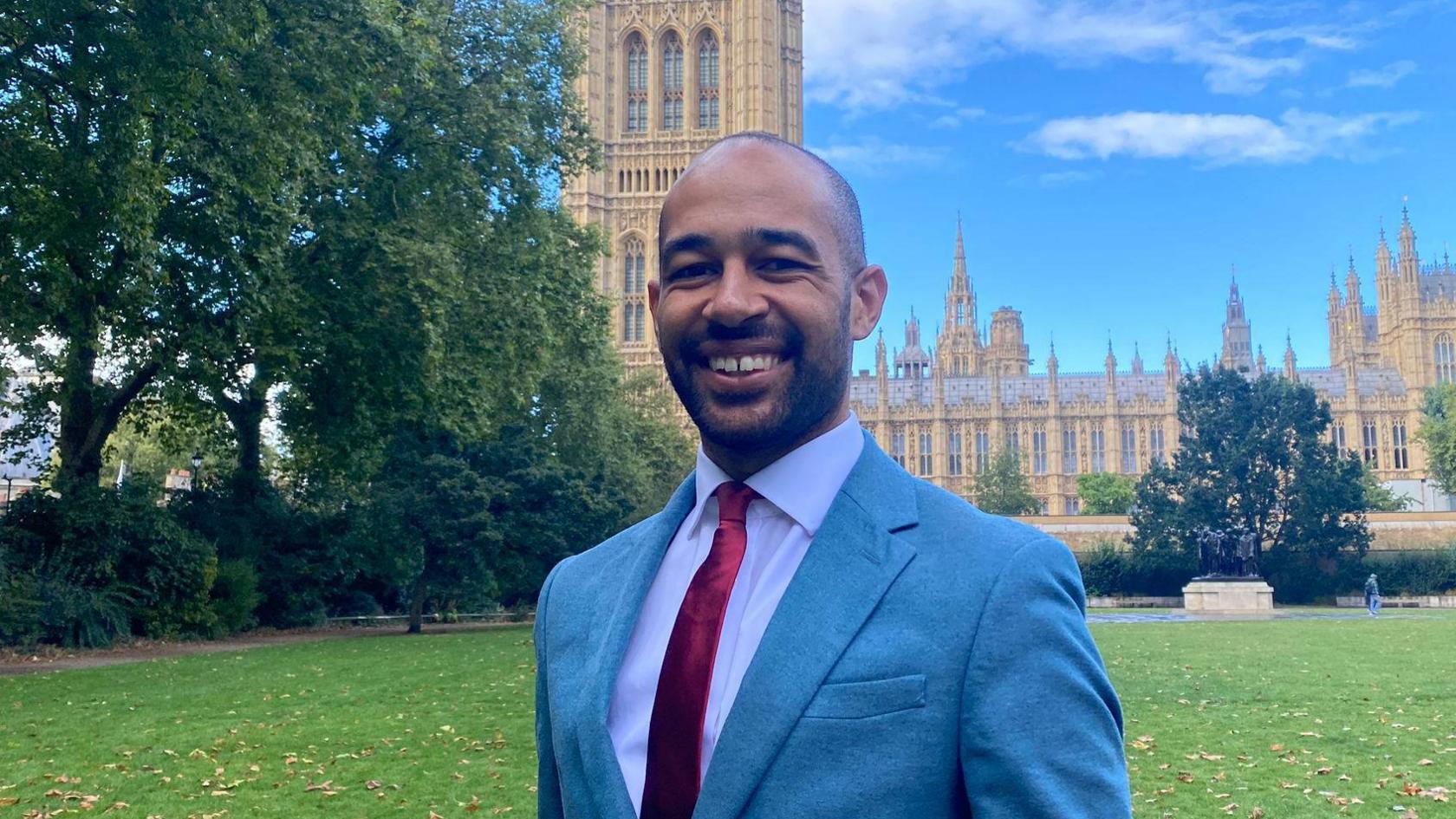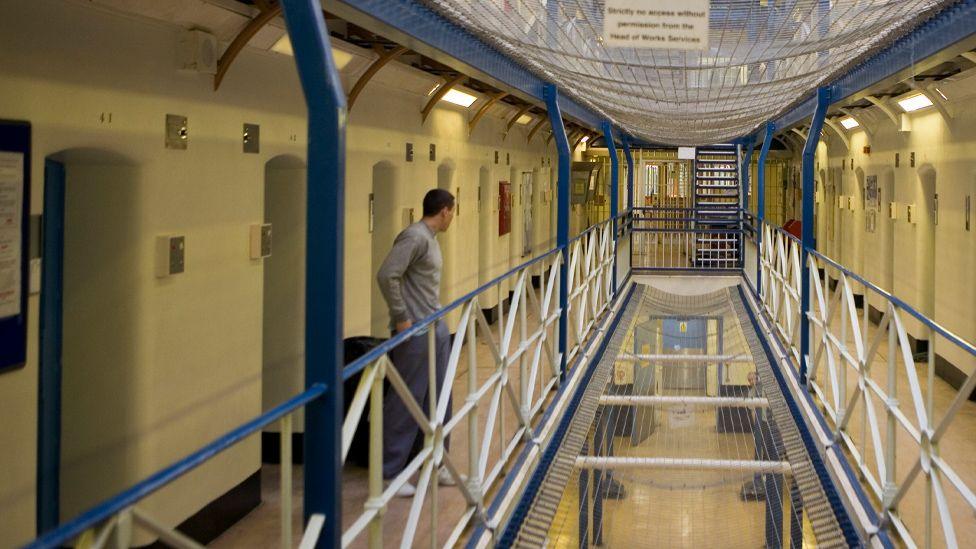Lib Dem MP: Short sentences are not tough on crime

Lib Dem MP Josh Babarinde was elected the MP for Eastbourne in July
- Published
As prisons across the country release offenders early to deal with overcrowding, political space is opening up for a debate about crime and punishment.
Sentencing is in the spotlight, as Ministry of Justice figures, external show more than half of adults (57%) released from prison sentences of less than 12 months went on to reoffend.
“That is not being tough on crime,” said Lib Dem MP Josh Babarinde. “Liberal Democrats are clear: we need to find a better solution.”
On Monday, activists voted to approve a crime policy at the Lib Dem conference, including a “presumption against short sentences of 12 months or less to facilitate rehabilitation in the community”.
Unlocking reform
It’s not a new idea - a presumption against short sentences was introduced by the Scottish government in 2010 and extended in 2019.
Then the previous Conservative UK government tried to pass a sentencing bill that included “a presumption that custodial sentences of 12 months or less be suspended”.
The draft law was scrapped after the general election was called earlier this year.
Conservative justice secretaries from David Gauke to Ken Clarke - who backed a “rehabilitation revolution” in 2010 - flirted with the proposal as well. And yet politically, it’s struggled to gain widespread support and ultimately fallen short of becoming law.
That could change under the Labour government, which has promised a review of sentencing and appointed a reform-minded prisons minister, James Timpson.
In their general election manifesto, the Lib Dems said they wanted to break the “cycle of reoffending by improving rehabilitation in prisons and on release, and strengthening the supervision of offenders in the community”.
The policy motion backed at conference was more specific. It called on the government to “put cutting reoffending at the heart of their plan to end the prisons crisis”.
This includes “introducing a plan to improve the rehabilitation of people leaving prison”, and reaffirming an existing policy of a presumtion against sentences under a year.
Going forward, Babardine is keen to have his say on his party's plans for prisons.
As someone who once employed ex-offenders, the newly elected MP for Eastbourne has strong views on justice and what that means.
Before entering politics, he volunteered as a youth worker in London, supporting children from challenging backgrounds.
“I loved that work and it meant a lot to me because I had a tricky childhood,” Babarinde said.
He went on to found Cracked It, a smartphone repair company that was staffed by young ex-offenders.
When thinking about ways he could equip young people with the skills to work in the tech sector, he realised there was a huge demand for phone repair.
He watched YouTube videos to teach himself how to fix phones, and once he’d piloted the business at a market in London, he launched repair pop-ups in offices across the capital.
Eventually, the company was closed during the Covid pandemic, after lockdown restrictions shuttered offices and undermined its business model.
But until then, Babarinde said it was a successful business, with employees with criminal convictions at its core.
So why did he employ ex-offenders?

Babarinde is one of 72 Lib Dem MPs, after the party's success in July's general election
Babarinde said: “We know ex-offenders who are in employment are less likely to reoffend. And if we want to tackle the problem of offending in our society and the prison overcrowding crisis, we must reduce reoffending. So I sought to do that in a very practical way.”
He was advised by Lord Timpson, whose key-cutting and shoe repair business has made a point of hiring hundreds of former prisoners.
Judging sentences
A scheme to release some offenders early to free up space in prisons started last week. The Labour government said this was necessary to prevent the prison system from running out of cells.
This month, four former senior judges urged, external the government to reverse the trend of “sentence inflation”, arguing there was little evidence that longer prison terms had contributed to falling crime rates.
It's not a view shared across the political spectrum. Former immigration minister and Tory leadership contender Robert Jenrick posted last month, external: “We need more prisons so we can jail repeat offenders for longer and cut crime."
But Babarinde believes the evidence on the link between short sentences and reoffending is clear.
“What works is supporting people through employment and mentoring programes,” he said.
“I think it’s important that politicians do not use the criminal juistice system as a political football.”
Related topics
- Published13 September 2024

- Published10 September 2024

- Published11 December 2024
